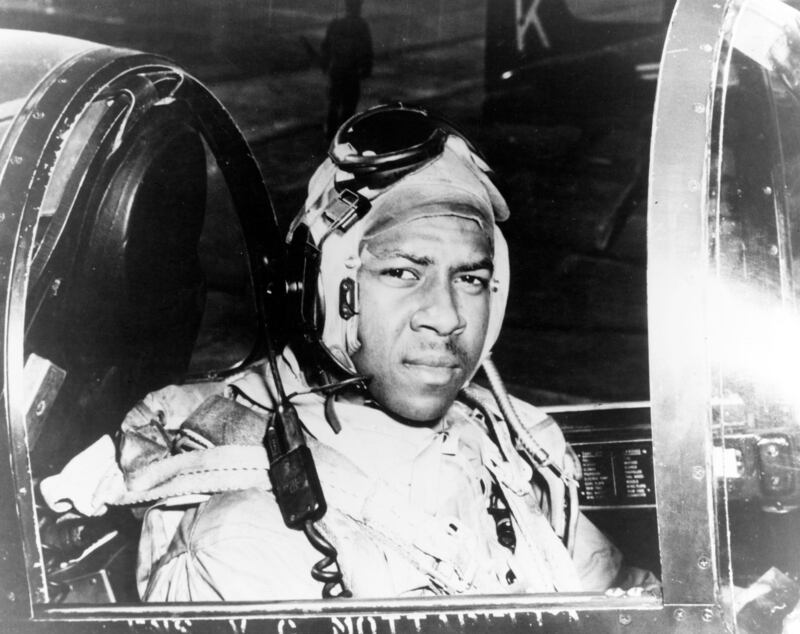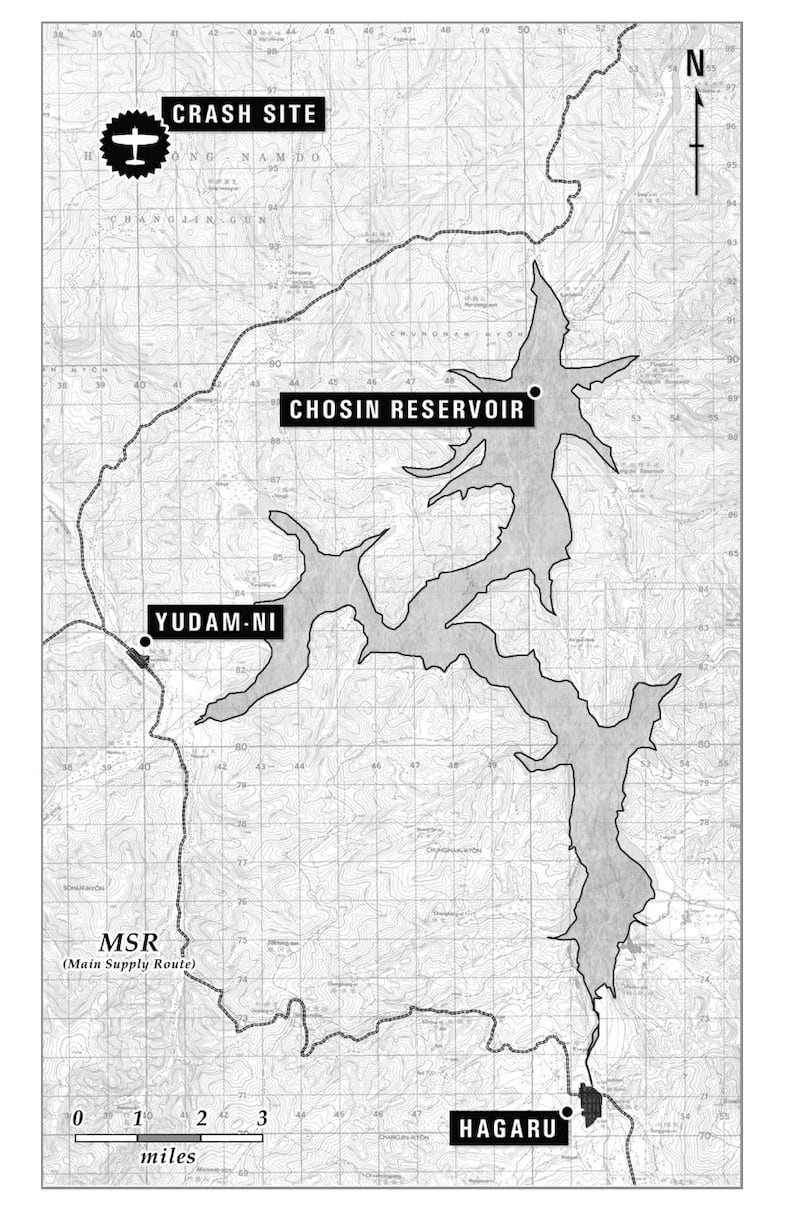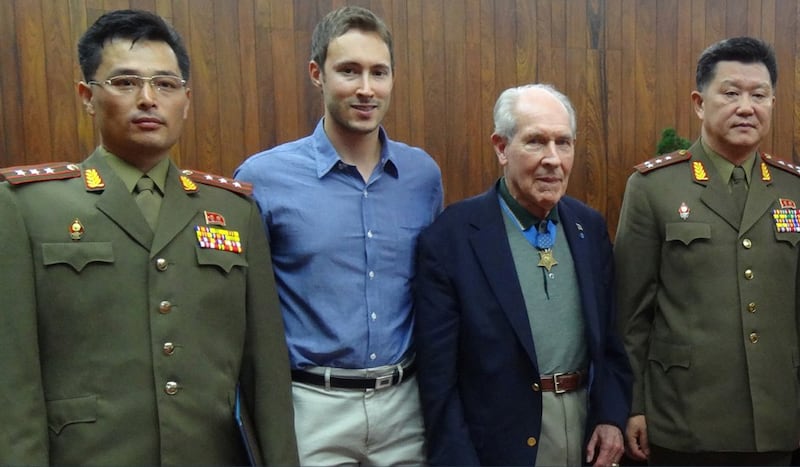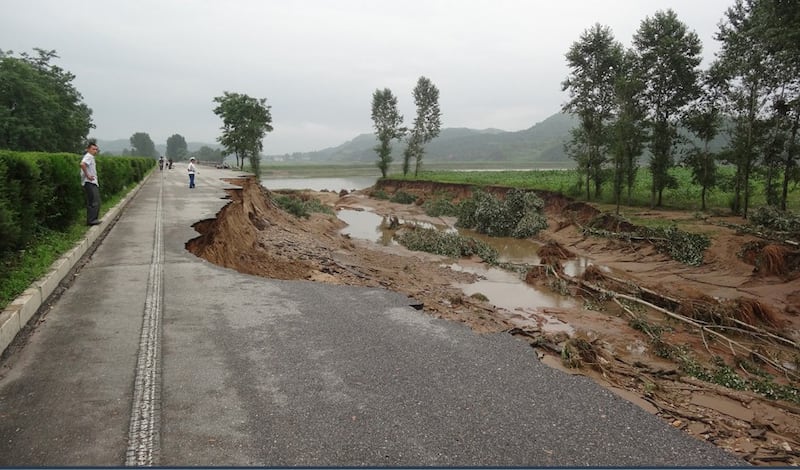Adam Makos, the author of “Devotion,” who visited North Korea in 2013 to negotiate the retrieval of a Korean War soldier’s remains, hopes to return to continue efforts to recover the remains of Jesse Brown, the U.S. Navy’s first black carrier pilot.
His book, now turned into a major film directed by J.D. Dillard, starring Jonathan Majors and Glen Powell, tells the story of Brown’s heroic legacy and sacrifice during the Korean War, often referred to as the “Forgotten War” because it is overshadowed by World War II and the Vietnam War.

Born as a sharecropper’s son in Mississippi during a time of deep segregation in America, Brown became the first Black man to complete Navy flight training in 1948 then was later assigned to assist UN troops in Korea as the war unfolded.
In the 2013 trip to North Korea, Makos was accompanied by Korean War veteran Tom Hudner, who was Brown’s wingman during one of the most brutal fights in the war, the Battle of Chosin Reservoir.
The two F4U Navy fighter pilots were flying a mission to support the Marines at Chosin in the winter of 1950 when Brown’s plane was shot and began losing fuel. Unable to control his aircraft, Brown crashed in the mountains at least 13 miles behind enemy lines northwest of Chosin Reservoir.
The impact of the crash pinned Brown’s leg against the instrument panel trapping him inside the cockpit, but his wingman couldn’t abandon him.

“That’s when Tom Hudner did this incredible act. It had never been attempted before. It has never happened since,” Makos said in an interview with Radio Free Asia. “Tom intentionally crash-landed his plane on the mountain next to Jesse Brown to get out and try to save his friend.”
Hudner survived the crash-landing and was able to locate Brown’s plane. Despite his best efforts, he couldn’t pull Brown out of the aircraft without any equipment to aid him. Instead, he watched Brown slowly lose consciousness as they waited for rescue to come in subzero temperatures.
With a shallow breath, Brown told Tom to relay one final message to his wife. “Just tell Daisy how much I love her,” he said, as Brown closed his eyes and slumped heavily forward.
When rescue came for the two pilots, Brown was unresponsive and Hudner had no choice but to leave him behind with only a promise to come back for him.
“He said something very unusual. He said, ‘We’ll come back for you.’” said Makos.
According to Makos, Hudner believed he could return for Brown’s body over the next couple of days because the Americans thought the battle of Chosin would be over quickly. But that proved to be untrue as U.S. forces had to retreat.
After the war was over, Hudner was not able to go back to North Korea to retrieve his friend.
Determined to help Hudner keep his promise, Makos coordinated with the same team that helped basketball player Dennis Rodman visit North Korea in February 2013.
“Of my 10 days there negotiating with [North Korean officials], we were asking them for permission to go to the crash site to find Jesse Brown ourselves, because [his remains] were never recovered after the war,” said Makos about his trip to the country in July 2013.

But the summer monsoons made the expedition to Chosin Reservoir impossible. Instead, Makos spent his time negotiating with Korean People’s Army officers and attending state-level events with North Korean leader Kim Jong Un.

“We were guests of the North Koreans. We even watched fireworks with Kim Jong Un, which is very surreal when you look and he’s sitting 50 feet behind you in a leather chair watching the fireworks,” Makos said.
Upon returning from his trip to North Korea, Makos continued to work on his novel while also keeping up efforts to continue negotiations for recovering Brown’s remains.
An attempt to restart the operation was put on hold because of the COVID pandemic.
Still, Makos hopes to continue efforts for recovering Brown’s remains by coordinating with the Defense POW/MIA Accounting Agency through civilian contractors.
He believes it is time people remember to honor the forgotten heroes of the Korean War.
“We're going to put a face to the Korean War. And best of all, how can you call it ‘The Forgotten War’ when it's remembered?” asked Makos. “We're going to remember this war.”
Makos’ film, “Devotion,” is now playing in U.S. theaters.
